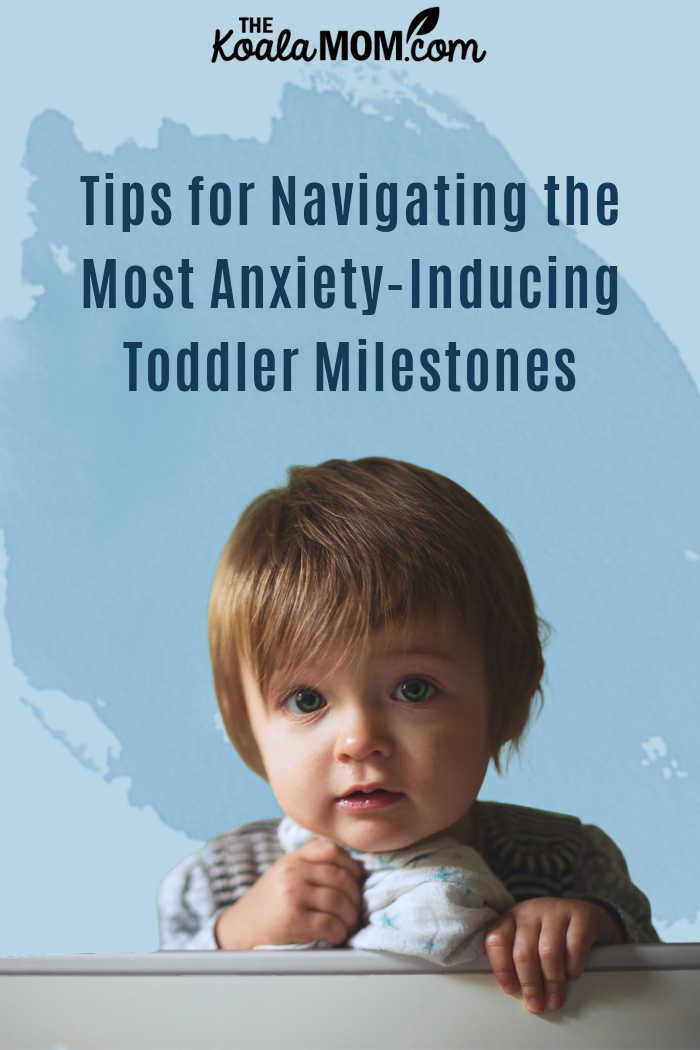It’s important for parents to be mindful of how their emotions impact those of their children, but new research suggests that this is important from a younger age than previously thought. According to USA Today, research has shown children aged between 0 and 3 have a huge depth of emotion that has not previously been detected. Of course, those years have the largest number of parenting milestones—some more anxiety-inducing than ever. Learning how to navigate those moments, and turn them into cherished memories, is important.

The move to bed
Transitioning from a crib to a bed is one of those anxiety laden processes. The protective walls of the crib are no longer present, and there’s a greater degree of freedom given to the child—anything could happen, right?
The thing is, children are just as anxious as parents. A bed can feel big, and sometimes lonely, and getting used to that is difficult. Expect a transition period, even if your toddler is excited about his or her new bed. It’s best not to make this transition at the same as other big transitions (such as a move). Children thrive on stability, so try to keep every other aspect of your child’s room the same, ideal for a good’s night sleep, while changing only the bed, to help them adjust quickly.
It may help to approach this transition in two stages. First, look at safety—assure yourself that the bed is safe, that the child will be okay, and that it’s a necessary step. Secondly, look at the emotional side of the change. It’s a new bed, potentially a new room, but not a big life-changing event. Impress that on the kids; ensure that they know it’s business as usual, and offer them tools to help ease the move, such as a new blanket or teddy.
Learning to speak
It’s always a wonderful thing when kids start talking. First words can come at any point between 10 to 15 months; yet this isn’t a straightforward equation. Avoid comparing your child to other children, as each child will start speaking when she is ready.
A child may be late in speaking actual words, but actually have developed a greater range of communication through the noises and sounds they make that will later go on to help them feel even more comfortable with speech. It can nevertheless be stressful for parents who feel their child is slow to develop speech; the key is in being understanding, and treasuring every single new sound that your child produces during their development.
Avoid using “baby talk” or silly words around your child. Instead, talk to him as you’d talk to a friend or an older child. Reading aloud to your child is also a great way to encourage them to learn new words and try out new sounds.
Teething
Of all the toddler milestones, teething is likely the worst. This milestone isn’t just one-and-one like the move to bed (hopefully) is. Teething starts when a baby is about 6 months old and continues until baby has all of his teeth around age 2. Symptoms of teething include drooling, chewing, irritability, crying, sore gums, and refusal to sleep.
Tracking when your baby develops certain symptoms may help you know when a tooth is about to appear (and how long you need to endure these symptoms). Some babies are more miserable during teething than others. If your baby is particular grumpy or sad about teething, you can try rubbing his gums with a clean finger or offering chewy teething toys that are chilled. Homeopathic remedies may also help.
Tracking the milestones
As a toddler approaches 36 months, they’re starting to move out of their status as a toddler. This brings with it a whole raft of new developmental milestones that represent your child moving from infanthood and into the learning stages of early life. Take photographs and videos of each step, as that’s a great way to both treasure the process and give yourself peace of mind. Keeping a close eye on how the child develops can help in avoiding development-related anxiety down the line.
The key in staying stress-free during the early life of your child is a cool head. Approach situations objectively and analytically—look at what your child is doing, and register that against your expectations. That, in turn, can help you to cherish memories rather than worry.

No Responses Yet